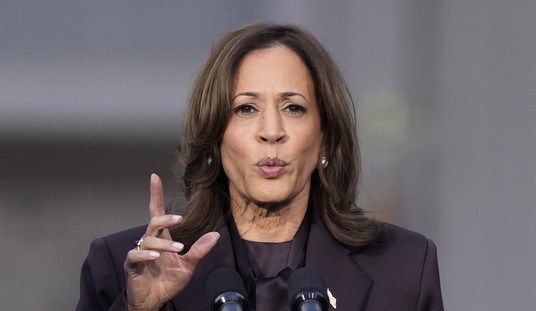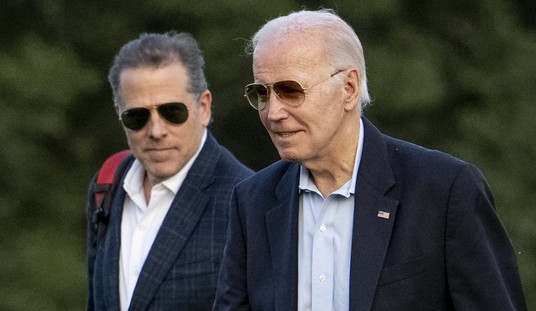Tomorrow, the voters in seven states and the District of Columbia go to the polls to conclude the primary election season. The most closely-watched race on the ballot will be the race between long-time at-large liberal Republican Congressman Mike Castle and Tea Party-backed conservative insurgent Christine O’Donnell for the Republican nomination for the open Senate seat previously vacated by Joe Biden. Because the election is a special election, the winner of the seat will be seated immediately (as with the Illinois Senate race) and serve until the general election in 2014.
There have been a long series of contested primaries in the GOP this year, albeit not all of which ended up getting resolved at the ballot box. Just in the Senate races we’ve had victories of one sort or another for the conservative insurgents in Florida, Pennsylvania, Utah, Alaska, Colorado, Nevada, and Kentucky, victories for the moderate establishment candidate in Indiana, Arizona, California, Washington, and (likely on Tuesday) New Hampshire, victories for conservative establishment figures in Ohio and Missouri, and less clear-cut ideological battles in Connecticut, Kansas, Arkansas, Louisiana and Wisconsin (New York’s another story entirely). In only one state (Illinois) has a liberal Republican won a race against any sort of opposition, and prominent and experienced liberal Republicans have gotten crushed in Connecticut (Rob Simmons) and California (Tom Campbell). Notably, a few of the moderates who did fend off a conservative challenger (e.g., John McCain and Carly Fiorina) did so with the help of an endorsement by Sarah Palin, the lightning rod of this primary election season.
The Castle-O’Donnell race has become perhaps the most divisive primary of this cycle within the conservative movement, for reasons I’ll explain in a moment. There are a couple of important questions at stake that are worth considering, which really go to the heart of what kind of party the GOP should be; but it’s equally important to recall that we are compelled to face those questions only because of the particular weaknesses of these two candidates and the conditions in Delaware. The result is that there are good arguments on both sides of this one, arguments that have been made eloquently already on the RS front page by people on both sides. As I’ll explain, I come out on the side of backing Castle, but the case for backing O’Donnell can’t be dismissed out of hand and deserves serious reflection.
Let’s start by remembering a crucial principle that I have reiterated at every possible opportunity, and that is almost invariably the first casualty of commentary on primary fights: the individual circumstances of individual races matter. Ideas don’t run for office, people do. The dynamics of different races in different years in different jurisdictions with different electorates are different. Arguments that win in one race may be foolish in another. We all need to put down the rhetorical blunderbusses on this race and look at the facts in making our judgments.
Why Conservatives Should Support Castle
At first glance, the argument for Castle is a microcosm of the argument for moderate or liberal Republicans in a lot of races: he can win and O’Donnell can’t, or at any rate he’s a fairly sure winner and O’Donnell, in a general election, would be a very long shot. This is not, however, simply a repetition of the idea that moderates are always more electable, a view that is often flat wrong (the people who want us to run moderates are often the same ones who criticize the party for not having ideas…but of course, not having ideas is generally the defining characteristic of moderates, see the John McCain and Bob Dole presidential campaigns). It’s not even just the assumption that conservatives can’t ever win in Delaware, although it would be nice for people commenting on this race to understand that Delaware really is a different animal from Colorado or Nevada or Utah or Alaska. As Martin Knight noted:
The race to replace Mike Castle in the House has the Democrat leading either of the two likely Republicans by approximately 16 points. This is the exact same electorate that will be faced with a choice between Coons and O’Donnell in the Senate race – the same electorate that is already showing that they prefer Coons to O’Donnell by 11 points and prefer Castle to Coons by a similar 11 points.
Castle, of course, has won many statewide races in Delaware, and is the easy favorite if he wins the nomination. The last guy more conservative than Castle to win statewide in Delaware was Bill Roth, and Bill Roth was nobody’s idea of a conservative; the last actual conservative elected statewide was Pete du Pont, and that’s more than two decades ago, plus electing a du Pont in Delaware is pretty much the opposite of populism. Even a passing familiarity with the state’s economy and political culture should tell you why a populist candidate like O’Donnell is a tougher sell in Delaware than even in, say, Massachusetts or Connecticut.
And we’re not talking about a generic conservative candidate like O’Donnell, but O’Donnell herself. O’Donnell’s not a veteran state legislator like Scott Brown or Sharron Angle, or a former federal judge like Joe Miller, but a repeat candidate with no real experience at any level of government. I’m all for citizen legislators, but my point is that she really has nothing to fall back on to convince skeptical voters that she’s a serious person. And O’Donnell has had a series of problems the past few weeks, from a trainwreck radio interview where she was caught fibbing about having won some counties against Joe Biden in 2008, to a disastrous effort on her behalf to claim that Castle was gay, to a series of hit pieces on her financial and other woes (Robert Costa at NRO sums up O’Donnell’s troubles, and see also John McCormack at the Weekly Standard). Undoubtedly some of this is dirty pool – the Castle camp’s last-minute FEC complaint smells like this – but we’re 51 days from the general election, and it’s not helpful to have a candidate who is taking on water as rapidly as O’Donnell, and far too late in the day to find a replacement candidate.
The picture, looking at the polls, is predictably grim for O’Donnell; as Neil Stevens has catalogued here and here, polling shows fairly convincingly that O’Donnell isn’t even as popular with Republicans in the general election as Castle, even before you get to independents and Democrats. The PPP poll showing O’Donnell pulling to a within-the-margin-of-error 47-44 lead among likely primary voters may establish that she’s electable in a primary that doesn’t even draw all Republican voters to the polls, but it certainly doesn’t suggest that she’s a strong candidate:
GOP voters are pretty sharply divided about O’Donnell as well. 45% have a favorable opinion of her with 41% seeing her unfavorably. Only 50% of primary voters think she’s fit to hold public office but she does much better than Castle on the ideology front- 53% think she’s about right.
If you believe in supporting the most conservative viable candidate, there’s still a rather persuasive argument that you have to back Castle because O’Donnell’s just not viable, and Castle is – if nothing else – more conservative than Chris Coons. Even some arguments for O’Donnell, like Erick’s view that O’Donnell shouldn’t be a priority to Jeffrey Lord’s argument that losing elections today helps build to victories tomorrow, assume that O’Donnell is basically a sacrificial lamb. Democratic observers seem inclined to give Delaware a pass if Castle wins, but possibly jump into the race if facing O’Donnell.
Should it matter whether the GOP wins this race? There are three critical numbers in the Senate: 41, 51 and 60. You need 51 votes to control the chamber – i.e., chair committees, hire more staff, etc.; the Democrats for the next two years can get this with 50 Senators plus the Vice President – and to pass legislation (including tax and budget bills not subject to filibusters), but you need either 60 votes to override a filibuster or 41 to hold the line on one. Right now, the GOP has 41 Senators, so there’s no margin for error in holding the line, not unless there are defections by Democrats or Joe Lieberman. In a potential lame-duck session in November, there could be 42 or 43 Republicans, if Castle and/or Mark Kirk wins their races. Even if you don’t especially trust either of them, adding those extra votes (ideally both of them) immediately improves Republican chances of staving off a last gasp of legislative mischief before the consequences of this fall’s elections set in. There’s justifiable skepticism about whether Castle would indeed oppose something like cap-and-trade, which he’s long supported, in a lame duck session, but Jim Geraghty, in his defense of Castle’s record, points to a statement given by Castle to Americans For Prosperity in which Castle is (at least for now) promising not to:
Castle recently matched her promise to stop the lame-duck agenda. I asked his staff for a statement from Castle on the lame-duck session and they provided this very strong statement from the congressman: “The only business that should be conducted during a lame-duck session of Congress is keeping the government running until the newly elected legislators are sworn in. I do not agree with those who say this period of time should be used for passing controversial legislation and would not play a role in helping to circumvent the will of American voters.”
I accept that people experienced in dealing with Republicans of Castle’s ilk may not place a lot of value on that promise, but in weighing the likelihoods here, I expect that it’s probable that Castle at least would not break a promise that unambiguous that quickly.
As for what Castle would do in office beyond a lame-duck session, I have no illusions that he’d be in the GOP foxhole more than half the time at best, and far less than that on fights where conservatives are taking on the GOP establishment, as opposed to siding with the powerful corporate interests that hold so much sway in Delaware. Geraghty’s piece is worth reading for the details of how Castle got a career ACU rating of 52 and a rating of 56 in 2009 (up from 28 in 2008, natch), even if you gag on the rather risible suggestion that Castle is any but the most once-in-a-blue-moon accidental kind of friend to pro-lifers. Either way, however, Castle’s status as a fair-weather friend to the GOP and only very rare fellow traveler with conservatives is better than the Democratic candidate, Chris Coons, a man who once wrote a college newspaper article entitled “Chris Coons: The Making of a Bearded Marxist” about his political conversion after a trip to Kenya. Whatever your view of the 2006 Rhode Island Senate primary race between Lincoln Chaffee and Steve Laffey, the outcome from a Coons victory would be similar to the one in that race, ensconsing a liberal Democrat who could well be in office for decades. If you’re serious about beating liberal Democrats and driving their terrible ideas from the public square, wanting to keep Chris Coons out of the Senate ought to be a thing worth doing.
The real rub is the 51st vote to control the chamber and pass a budget. It’s unlikely that the GOP will get close to needing a 41st vote to hold filibusters, or having a 60th vote to break them without bipartisan support, between this November and the 2014 election, when Castle’s term would be up. Moreover, if (as many of us now expect) the GOP gains control of the House this fall, there will be little threat in 2011-12 that the Senate will be voting on a whole lot of liberal legislation, and thus few “bipartisan compromises” on which a Castle defection might be damaging. But with GOP gains in the Senate looking like a good shot at +7 or +8 and a non-trivial chance at the +10 needed to swing the chamber, the decision on whether to throw away the Delaware seat could be a consequential one. And I trust that, at least between now and 2012 (when the GOP could conceivably take the White House, but could also get more reinforcements in the Senate), Castle won’t have any reason to bolt the party Jim Jeffords-style, not having done so yet (not that I’d put it past him once Republicans are governing again).
There’s also a benefit to demoralizing and defunding the opposition. The Democrats, lacking control of the Senate, will lose the jobs of a lot of staffers; they’ll lose access to corporate and lobbying money that (as we all know in the real world) flows to the party in power. They’ll lose the ability to recruit candidates on the promise of joining the majority (recall that in both 2012 and 2014 the Democrats will be defending twice as many Senate seats as the GOP, so unless we see a repeat of the 2006 and 2008 Democratic waves, it’s not likely they’ll gain seats and highly likely they’ll lose more). The GOP will gain these things. If you think that shifting more power and advantage to the GOP over the Democrats is a good thing, you would presumably support Mike Castle.
Now, if you assume GOP control of the House and Democratic control of the White House, control of the Senate is not quite as urgent in other ways; the GOP has a firm foothold in the legislative process and a platform from which to launch oversight investigations, etc. But not every issue goes through the House; the Senate has unique jurisdiction over matters like treaties and, of crucial importance, judicial nominees, and the agenda-setting power of a majority in those areas can be profound. We know from experience, as well, that even liberal Republicans like Olympia Snowe, Susan Collins and (once upon a time) Arlen Specter can be counted on to take the conservative side in some fights, witness the confirmations of Chief Justice Roberts and Justice Alito (by contrast, liberal Republicans will never be useful in a fight against any but the worst judicial nominees from the Democratic side; that’s life).
All of this assumes that conservatives, having no realistic alternative but to work within the Republican party, despite not having undisputed control of the party, have a stake in the party’s electoral success, and that gaining control of the Senate by means of Mike Castle would not hamper either the party’s success or the movement’s power within it. Which leads us to…
Why Some Conservatives Have Good Reasons For Supporting O’Donnell
The fact that there are good and practical arguments – with which I largely, if reluctantly, agree – for supporting Castle does not mean the arguments to support O’Donnell are frivolous or unworthy of serious consideration.
I’d rather see the Democrat get elected than see Mike Castle get elected. Seriously, I know many of you disagree with me, but if the majority depends on Mike Castle, to hell with the majority.
+++
I would rather 50 seats without Mike Castle than 51 seats with Mike Castle. The push to support Mike Castle by “conservative” groups, pundits, and others says more about the selling out of the conservative movement to the GOP than anything else. It happened in the Bush years and many conservatives were so thoroughly co-opted by the GOP Establishment they might as well be cut off from the conservative movement permanently.
Here’s the point of departure: there is a serious argument, and one I have particularly credited in races like the Pennsylvania and Florida Senate races, that even if they’re electable, Republicans can’t afford to elect big-government moderates and liberals, because both as a matter of philosophical conservatism and, ultimately, long-term political self-interest, the GOP can’t afford to be in a position (as it was by 2008) where voters feel they simply can’t tell the difference between the two parties in terms of spending, regulation and the size of government. The argument goes that guys like Castle will badly dilute the GOP brand every time they either (1) give “bipartisan” cover to some Democratic nonsense or, worse yet, (2) water down the GOP’s own agenda as a condition for getting it passed. This is an especially big problem when you’re dealing with the last vote in a majority. And as a practical matter, because Castle knows that the likely outcome of a primary challenge to him (assuming he intends to serve more than a single term, which is debatable) is a Democratic victory, he’ll actually be less persuadable by grassroots pressure from the Right than a guy like Ben Nelson, who will vote for Democratic control of the chamber but needs to win Republican-leaning independents in Nebraska to keep his job. Hogan adds detail to the behind-the-scenes dynamic of adding a guy to the caucus who is neither conservative nor trustworthy:
Liberal and establishment Republicans have corrupted the entire Republican Conference in the Senate. Other than a very few stalwarts, most Republican Senators (whether they are supposedly “moderate” or “conservative”) simply do not IN ANY WAY stand for the principle of limited government – they like to spend money, they want to be seen as “reasonable” more than principled, and they get together in their little Senate club and drench themselves in the kool-aid of “getting things done” for the American people (which is code for sticking it to the people). That remains true today. They look at the Tea Party movement and what is happening in primaries around the country with dismay and disdain. They want it to go away.
Adding Mike Castle, a veteran liberal Republican, to the Senate would add another voice to the room of the need to moderate our tone. He would be a voice for compromise and reaching across the aisle. He would give lip-service about voting to repeal Obamacare, while at the same time demanding that Republicans “replace” it with something reasonable, which would undoubtedly be God-awful policy. He would be a poison in meetings of Republican Senators, where they like to talk themselves into nonsensical positions based on some mix of polling, overpriced consultants and most of all, stupid group-think.
The related argument is, basically, that Mitch McConnell and his leadership team simply aren’t ready yet to absorb the full lesson of the 2006 and 2008 elections and the Tea Party movement; that while John Boehner may be ready to take a harder line on spending and size of government in the House, giving McConnell the majority back – with all its perquisites – would reward him before he’s learned any lesson.
These are serious points, but I think ultimately they misread the times and the extent to which different strategies are needed in different situations. Republicans in 2002-06 grew a majority, it is true, that depended on way too many people who were not small-government conservatives. But we need to recall three things. One, the war was such a dominant issue in those years that the grassroots of the party simply wasn’t looking after these issues (and that includes bloggers like me, I admit). Two, and relatedly, we had leadership from the White House that de-prioritized and at times affirmatively trashed small government. Bush wasn’t nearly as bad as Obama, and the flaws in his record on spending and regulation are sometimes exaggerated, but there’s no serious argument that he was a small-government guy, and we knew that even before he began running in 1999. And three, we had a lot of misalignment, i.e., non-conservatives elected in jurisdictions where a conservative should have a fighting chance. We’re at work fixing that problem in places far more hospitable to conservatives than Delaware.
When we turn to 2009-10, Republicans have needed, as an outnumbered and beleaguered minority facing an unprecedented effort to permanently expand the federal government, to insist on a greater level than before of party discipline and ideological purity so as to get the message out to a frustrated public that both sides were not equally guilty of the things that have so inflamed public sentiment about an out of control government. My own guess is that a guy like Castle doubled his ACU rating from 2008 to 2009 not because he was thinking about an election before the same voters who have been electing him for years, but because he saw the ground shift to the point where even he had to vote against some really alarming things, like the Obamacare and stimulus bills.
But these things will not always be the case. The goal of anyone who cares about conservative ideas becoming public policy should be to build a working majority. A working majority needs a core, and we’ve been building that in the many states where a conservative can get elected. But it can also make use of marginal members who don’t vote with the core all that much, but who win elections that would otherwise be won by determined opponents. In the long run, I’d rather have a Senate with 45 or 51 conservatives and 10 moderate/liberal Republicans than a Senate in which we can only win those elections a conservative can win, a Senate in which we give ourselves no margin for error in having the votes to make policy (consider how few conservatives you can think of who never dissent from the pure conservative position on any issue). That may be a frustratingly incomplete result, but frustratingly incomplete results are what the Senate was designed for. A movement serious about governing must try to win the marginal districts like Delaware, even if that means electing marginal candidates.
As for the concern about McConnell, I fear that some of the critics are letting their focus on McConnell distract them from what’s really going on. The GOP will return just 32 incumbents (including Scott Brown) in 2011, so if a majority is possible it will consist of an unprecedented 19 freshman Senators, many of them ready and able to join the “blow stuff up” caucus of Senators like Jim DeMint and Tom Coburn who are serious about fighting tooth and nail against government excess. You don’t need that many of those people in the Senate to make a lot of havoc. Also, McConnell’s close associates among the moderates in leadership have been systematically eliminated – you can bet that we’re going to have a leadership team that has more voices at the table for conservatism in 2011, given the number of new Senators who will have overcome determined opposition by the NRSC and the leadership to win election, and those people will have a very powerful argument that if they’re ignored, yet more heads will roll in future primaries in states more conservative than Delaware. Those new conservative Senators will also bring to town a lot more new conservative staffers. Majority leaders by nature have no choice but to ride the tiger of their own caucus, and while a caucus with Castle, Kirk, Snowe and Collins will pull McConnell to the left, he’ll have an awful lot more people pulling him to the right no matter what his own inclinations.
Then there’s the strategic argument, which is basically that leaving the Democrats with an impotent majority in the Senate is better than having a Congress fully under GOP control, because Obama will be able to repeat Bill Clinton’s record of demonizing the GOP’s obstructionism. I hear this, but I don’t buy it. One, the public will already know that Obama is engaging in knock-down-drag-out budget fights with John Boehner and the House GOP; Obama’s preparing the ground for that already. Two, the public isn’t always that attentive; voters seemed barely to notice in 2008 that the Democrats were already running both Houses of Congress. Three, Obama’s not Bill Clinton. Clinton had failed to do half as much damage to small government in his first two years in office, and had a lot more skill and experience in presenting himself as a man capable of learning lessons about the size of government. Clinton could plausibly portray himself as a reasonable, compromising fellow spurned by extremist Republicans because he was actually, if grudgingly, signing on to some significant conservative policy priorities, notably welfare reform. Obama will do nothing of the sort. And as I said before, in terms of short-term electoral strategy, I think the GOP is better served institutionally by defeating the Democrats, demoralizing them and stripping their power base than by banking on winning the rest of the majority later.
Erick has suggested another concern whispered of in Delaware circles, that “[i]f Mike Castle becomes the next United States Senator from Delaware he is going to get sworn in, serve a bit, then become a Democrat, resign, and let Beau Biden get an appointment.” This may sound less fanciful if you’ve noticed three things: one, that when Castle finished his term as Governor of Delaware he basically cut a deal where he’d run for Congress and the state’s Democratic Congressman, Tom Carper, would run for Castle’s job; two, that Castle never tried to run against Joe Biden; and three, that Castle’s allies in the Delaware GOP haven’t run a candidate against Beau Biden for the State Attorney General job.
All that said, it seems to me much more likely, given how Castle and Delaware politics work, that what would actually happen is that the 71 year old Castle serves out his four years and then steps aside, at the point at which Biden would be deemed ready to run after four years as AG. If the idea is that Castle is going to all this trouble to keep the seat warm for the Bidens as part of a clubby backroom deal, it doesn’t make much sense; Biden could have been the nominee this year if he’d wanted to, or the incumbent Ted Kaufman – a Biden crony – could have run again.
Then there’s Jeff Lord’s argument that essentially casts O’Donnell’s race as a Goldwater-style sowing of the seeds for future conservative victories in Delaware. The problem with this idea is pretty much the same as the problem with arguing for a moderate presidential nominee for the GOP after the debacle of 2008: it’s already been done. O’Donnell ran for the Senate just two years ago, and got 35% of the vote. Conservatives have had our say already in Delaware, and hopefully someday we’ll find another great candidate who can try again there, as Pete du Pont did. Supporting Castle can itself be reconsidered under the conditions of 2014. But losing with O’Donnell will accomplish nothing.
I know part of this whole thing is about sending an intraparty message that guys like Castle aren’t acceptable, but have we somehow not sent that message already by knocking off Bob Bennett, Lisa Murkowski, Charlie Crist, Arlen Specter, Trey Grayson, Sue Lowden, and Jane Norton?
At the end of the day, yes: Mike Castle would be a weak, unreliable Senator who will do little for the conservative movement, and perhaps marginally weaken the movement within the GOP. But a Castle victory will also deal a blow to the movement’s bitter enemies in the Democratic party, whereas an O’Donnell win is highly likely to increase the power of the Democrats. You want to choose likely defeat with a conservative, do what I’m doing and vote for David Malpass in New York tomorrow. But while there are real and serious arguments on both sides, I can’t let an opportunity to defeat the Democrats and all they stand for pass by, not this year. If I was in Delaware, I’d vote for Castle.













Join the conversation as a VIP Member